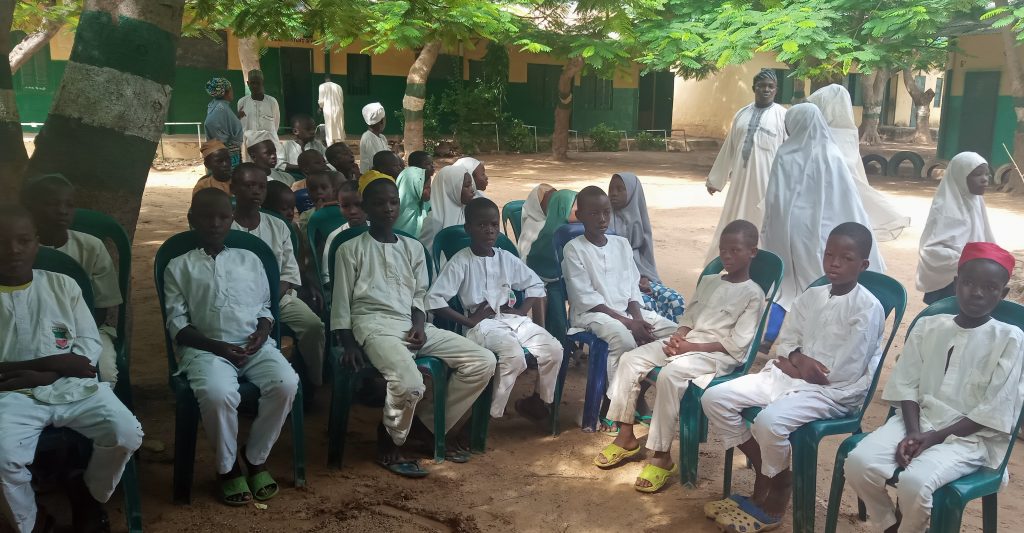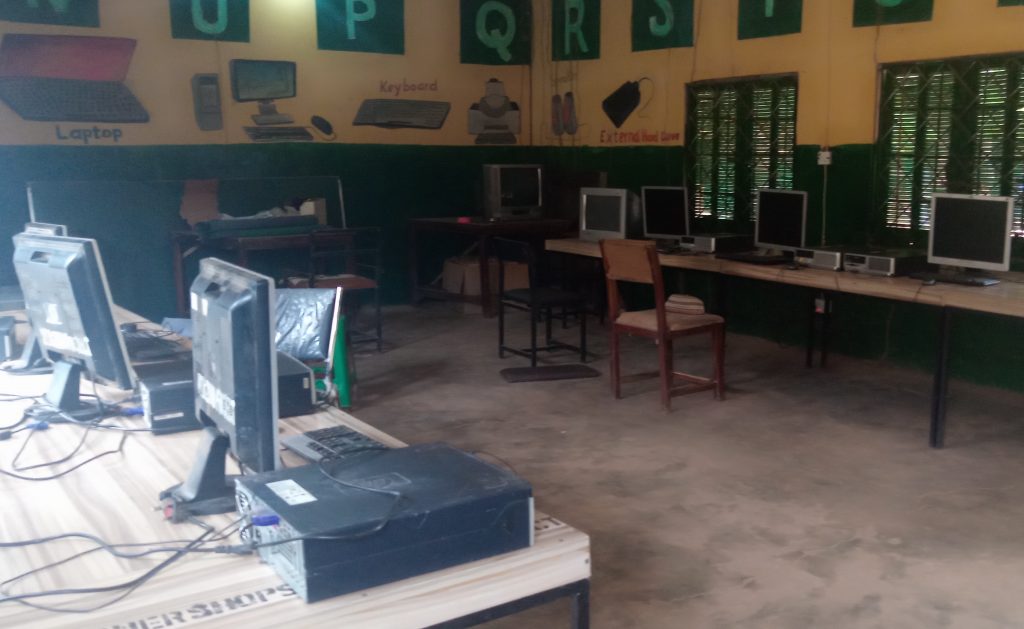Stakeholders in the education sector are highly perturbed over the wide basic education gap between the northern and southern Nigeria. In addition to several ongoing interventions to bridge this gap, DFID, UNICEF and the Federal Government are exploring community ownership of schools through the School Based Management Committees (SBMCs) in some northern states. REGINA OTOKPA reports that the resultant effect is encouraging.
Northern Nigeria is a peculiar region in the country in need of various interventions especially in the areas of health and education. There are a number of challenges including infrastructural decay, lack of educational facilities in rural and hard to reach areas, inadequate funding, unqualified teachers, low teachers morale and lack of interest by parents and children.
Even though the collaborative efforts of government, development partners and donor agencies have paid special attention on northern Nigeria where most families detest the idea of western education; population explosion, insurgency, poverty and ignorance has continued to keep millions of children in the region out of school. Majority of children are found on the streets hawking or begging for alms on a daily basis.
According to a survey conducted by the United Nations Children’s Fund (UNICEF), eight million out of the 10.5 million children between the ages of 5 to 14 in Nigeria estimated to be out of school, are domiciled in Kano and 11 other states.
While presenting Nigeria’s sectoral situation report in Nigeria UNICEF’s Education Specialist Muntaka Muktar said only 61 per cent of 6 to 11 year old attend primary school while 35.6 per cent of children between 36 to 59 months receive early childhood education.

To erase the stigma that comes with this sad tale, Federal Government present and past, have instituted several programmes with direct and complementary support from several development partners, to help change the narrative.
One of such programmes already driving a huge traffic of enrollment and retention in some schools in the north is the School Based Management Committees (SBMC), an all inclusive community participatory approach that allows communities take ownership of education in their localities, through identification of critical educational/school needs, monitoring and supervision of school projects, sensitisation and orientation on the importance of basic education.
According to the Universal Basic Education Commission, (UBEC), the SBMC presently running in six states namely Bauchi, Katsina, Sokoto, Zamfara, Niger and Kano, was introduced by the Federal Government in 2005 to help complement government efforts in the provision of basic needs and support for improvement of teaching and learning in primary and junior secondary schools.
Gaining momentum in implementing states, the role of the SBMC’s can never be over emphasised largely because basic education is not about the efforts put in place at the centre or by the state government, basic education is entirely at the rural level where the communities have an advantage of identifying, monitoring and supervising the execution of school projects, teaching and learning. In Kano State alone, over 4,500 schools are currently engaged in the SBMC programme.
Speaking at a media dialogue funded by the Department of International Development (DFID) through the United Nations Children’s Fund (UNICEF) in Kano State, UBEC’s Director of Social Mobilisation, Bello Kagara, maintained that the new and modern way of addressing education at all levels to ensure no child is left behind, is the present global strategy of addressing education targeting community and stakeholders participation.
According to him, the SBMC gives opportunity to host communities to be involved in school governance with elected but voluntary membership. This membership is drawn from religious and community leaders, former pupils, women associations, artisans, among others, has proven to be a bridge between schools and communities,
“Educational reforms now target participatory approach so we in UBEC engaged grassroot participation through the SBMC’s. The SBMC’s in our opinion are the laudest junction that we felt we can partner with engage and deliver education in the basic sector.”
Impressed by the remarkable achievements the SBMC’s have recorded, Kagara notes that the federal government has promised to inject N2.78 billion on the scheme in 2,505 basic schools across the country. “SBMC are set up to ensure the success of community participation in basic and secondary education and we will do everything to support it.”
He insists that mobilising parents to link up with all categories of opinion leaders and stakeholders in the education sector within their locality to effect an attitudinal change of parents towards school is a stepping stone to crashing the number of children out of school
A visit to Warure Special Primary School in Gwale Local Government of Kano State, further gave credence to UBEC’s testimony. Leading a full campaign on the importance of basic education, the SBMC’s facilitated the construction of a borehole, construction of 32 classrooms and 33 toilets and a computer room for students.
The Head teacher of the school, Yusi Dandago, notes that SBMC is charting a better education for their children than ever before by sensitizing community members on enrolment, attendance, retention and completion of pupils in schools, viz a viz campaigns on the rights of children in the community.

According to him, the school, which was established in 1959 with only 30 pupils, now boasts of 2,728 pupils, consisting of 1459 males and 1269 females, with 30 teachers and operate in 32 classrooms. He excitedly added that the SBMC’s were sponsoring 86 orphans and 91 less privileged students.
“The school SBMC was established in 2012 with the support of DFID’s Education Sector Support Programme in Nigeria (ESSPIN) and its members were trained. We also received support which includes grants for the development of the school.
“Some of the developmental projects include re-admittance of dropped out pupils and provided them with uniforms and writing materials, renovation of classrooms, provision of mechanized borehole, erection of additional fence and head’s teacher’s toilets and many more,” he said.
Reeling on the Impact of the scheme in Zamfara State, Abubakar Dogo, the State Chairman SBMC, called for a joint collaboration between all sections of education in the north; the government, SBMC’s, the alarama’s, tsangaya’s or Islamic schools to boost enrollment, retention and completion within the next five years.
“SBMC can revive the state of basic education in Nigeria because it is almost inclusive of all the community members with different perspectives but most importantly, their aim is how to get the school to work. Because the community is fully involved, the financial management of the schools are transparent and people are motivated.”
Hadiza Abdullahi who has been teaching at Wurare Special primary school in the past 11 years, could not hide her excitement over the positive changes the school has witnessed since the SBMC’s came on board.
Commending the mothers sub committee of the SBMC for their door to door advocacy on the importance of education, provision of uniforms and learning materials to pupils, she notes that the rate of begging, hawking during school hours has drastically reduced even as students now cone to school early
“We don’t feel discouraged, we expect every child to have a sound education in Kano and in the north. Before now a lot of people normally say northerners don’t go to school but now we are trying.”































